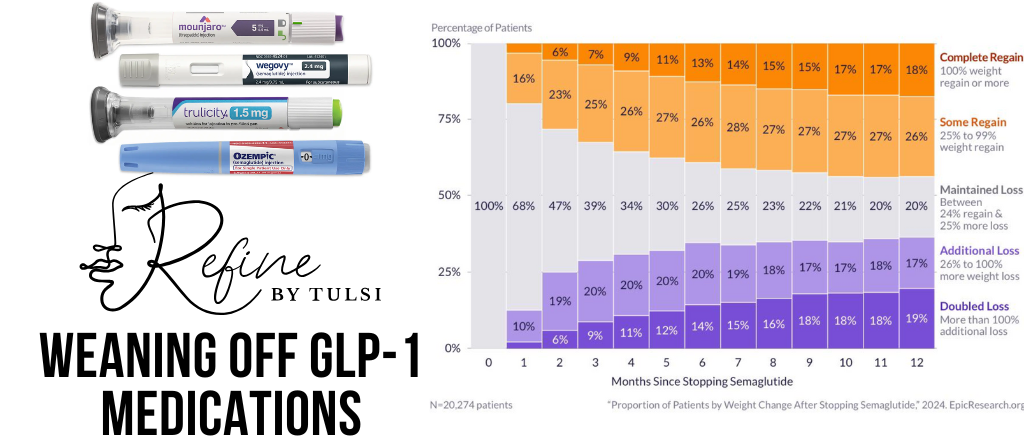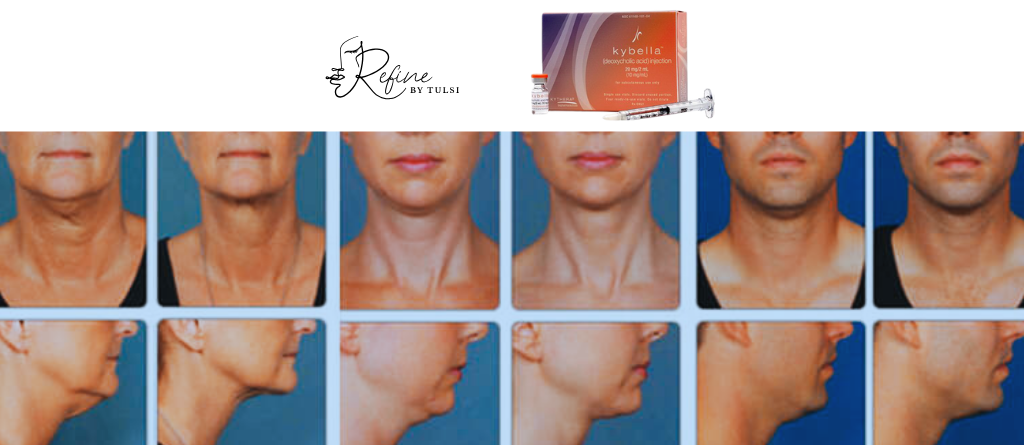In recent years, the buzz around Ozempic and other GLP-1 agonists for weight loss has surged. While these medications have shown impressive results in helping individuals shed pounds, a new term has emerged in the aesthetic world: “Ozempic face.”
If you’re considering or currently using Ozempic, it’s essential to understand what this phenomenon is and how you can prevent it while achieving your weight loss goals.
What is Ozempic Face?
Ozempic face refers to the sagging, hollowed appearance that some people experience after significant weight loss, particularly in the face.
As you lose weight, the fat that once plumped up your cheeks and provided a youthful contour may diminish, leading to a gaunt or aged look. This effect is not unique to Ozempic; it can occur with any significant weight loss, but it has become associated with the medication due to its popularity.
Why Does Ozempic Face Happen?
The primary reason for Ozempic face is the loss of subcutaneous fat, the layer of fat just under the skin. This fat provides structure and fullness to the face, and when it decreases, the skin can sag and the face can appear older. Additionally, as we age, our skin naturally loses elasticity and collagen, which can exacerbate the hollowed look after weight loss.
How to Avoid Ozempic Face?
While Ozempic face might sound daunting, there are several strategies and services available at Refine by Tulsi you can employ to minimize its effects and maintain a youthful appearance during and after your weight loss journey:
-
Skin Care Regimen: Incorporating a robust skincare routine can help improve skin elasticity and promote collagen production. Look for products that contain retinoids, hyaluronic acid, and peptides. At Refine by Tulsi, we offer a range of exclusive medical-grade skincare products from Alastin Skincare that can be customized to your skin’s needs.
-
Non-Surgical Treatments: Consider non-invasive treatments such as dermal fillers or collagen-boosting procedures. Fillers can restore lost volume in the cheeks and under the eyes, giving your face a fuller, more youthful appearance. At Refine by Tulsi, our experts can help you develop a personalized treatment plan for your skin type including Dermal Fillers and Thread Lifts.
-
Microneedling: Microneedling is another effective treatment for stimulating collagen production and improving skin texture. This minimally invasive procedure can help tighten loose skin and reduce the appearance of fine lines, making it an excellent option for combating Ozempic face.
-
Healthy Diet and Exercise: A well-balanced diet rich in vitamins and antioxidants can support skin health and natural weight loss. Exercise during and after your weight loss journey is absolutely critical g to maintain muscle tone and skin elasticity, which support facial structure. Our experts at Refine by Tulsi work you to develop a comprehensive and personalized plan.
-
Consult with a Specialist: Before and during your weight loss journey, it’s beneficial to consult with a medical professional who can guide you on how to maintain your overall wellness Our team at Refine by Tulsi includes board-certified physicians who specialize in both wellness and aesthetics, ensuring you achieve your goals safely and effectively.
Develop Your Personalized Treatment Plan at Refine by Tulsi
Ozempic face is a potential side effect of significant weight loss, but it doesn’t have to be inevitable. By following a proactive skincare regimen, considering non-surgical aesthetic treatments, and maintaining a healthy lifestyle, you can preserve your facial fullness and continue to look your best.
If you’re interested in developing a comprehensive weight loss plan and avoid Ozempic face or explore our range of treatments, visit us at Refine by Tulsi.
Start your ideal weight loss journey today and schedule a consultation with Dr. Tulsi Kotecha at Refine by Tulsi in Chicago, IL, or call our offices directly at (618) 298-8574.
External Resources:
- Plastic and Reconstructive Surgery Global Open: The Science and Theory behind Facial Aging
- National Institutes of Health: The Role of Collagen in Skin Aging






